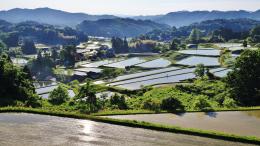Water Unequal Exchange: Embedded Groundwater, Chemicals, and Wastewater in Textile Trade from Bangladesh to the EU and the USA (2000–2023)
Textile dye production requires significant amounts of water and chemicals, generating substantial wastewater, which places significant burdens on local environments and water resources. Bangladesh is a global textile dye hub, exporting primarily to the EU and the USA. This research explores Water Unequal Exchange (WUE), which arises when high-income countries (HIC) externalize water use and pollution from consumption and production to low-income countries (LIC), driving environmental degradation beyond their borders. To determine WUE, this paper measures wastewater, groundwater, and chemicals embedded in Bangladesh’s textile trade to the EU and USA between 2000 and 2023. This is based on the net weight of the top 18 textile imports from Bangladesh, provided by the UN Comtrade Database. This paper finds that 3,942,091 million liters of groundwater, 10,792,675 million grams of chemicals, and 2,860,420 million liters of wastewater are embedded in these textile imports. The prices per kg of textiles differ depending on product type, and the highest volume of textile product categories have the lowest price per kg. In conclusion, the textile trade from Bangladesh to the EU and the USA represents a case of WUE, where Bangladesh disproportionately internalizes resource over-extraction and environmental impacts from dye production for low economic gain.




